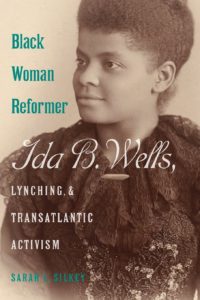Lecture Date: February 17, 2022
The Gemini 3 Group Lecture

Born in Holly Springs, Mississippi, to enslaved parents during the tumult of the Civil War, Ida B. Wells (1862-1931) joined a generation of young Black men and women who aspired to professional careers and successful lives as full citizens in the decades after Reconstruction. Following her parents’ tragic deaths during the 1878 yellow fever epidemic, Wells assumed responsibility for her orphaned siblings and began work as a school teacher at the age of 16.
After suing the Chesapeake, Ohio, and Southwestern Railroad for denying her access to the first-class ladies car, Wells began a career in journalism. Responding to the murder of her friend, Thomas Moss, and his business partners in 1892, Wells launched a campaign against mob violence as editor of the Memphis Free Speech.
When a series of shocking lynchings generated unprecedented international scrutiny, Wells travelled to England and Scotland to cultivate British support for African American civil rights. In less than eighteen months, Wells mobilized a vibrant network of British reformers who pressured American social and political leaders to denounce mob violence.
Wells was an outspoken opponent of segregation, the convict lease system, and lynching — three powerful systems of oppression supported by popular cultural narratives of Black inferiority and criminality. Wells’s activism can help Americans understand the systemic historical forces and enduring racist narratives that continue to influence debates about inequality today.
Speaker: Sarah L. Silkey

Sarah Silkey, Ph.D., is Professor of History and Chair of the History Department at Lycoming College, where she teaches courses examining the intellectual, social, and cultural history of modern America. Her research examines the history of mob violence, anti-lynching protest, and transnational debates about American race relations. She is the author of Black Woman Reformer: Ida B. Wells, Lynching, and Transatlantic Activism.